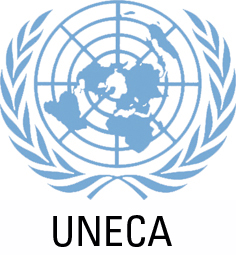Focal point
Location
P.O. Box 3001
Addis Ababa, Ethiopia
Established by the Economic and Social Council (ECOSOC) of the United Nations (UN) in 1958 as one of the UN's five regional commissions, ECA's mandate is to promote the economic and social development of its member States, foster intra-regional integration, and promote international cooperation for Africa's development.
Made up of 54 member States, and playing a dual role as a regional arm of the UN and as a key component of the African institutional landscape, ECA is well positioned to make unique contributions to address the Continent’s development challenges.
ECA’s thematic areas of focus are as follows:
- Macroeconomic Policy
- Regional Integration and Trade
- Social Development
- Natural Resources
- Innovation and Technology
- Gender
- Governance
Members:
Resources
Displaying 541 - 545 of 872Food and agriculture (Lusaka MULPOC)
This paper focuses on the deteriorating food situation in Africa which led to the Freetown Declaration of the FAO Regional Conference of Ministers of Agriculture in 1976, the Regional Food Plan (AFPLAN) was drawn up jointly by FAO and ECA and adopted by the FAO Regional Conference of Ministers of Agriculture in Arusha in 1973.
Summary report of main activities of the FAO/ECA advisory group on Food and Agricultural Industries Development in Africa (AGFI) 1980-81
With the goal of stimulating the production and utilisation of indigenous cereals, rootss tubers and legumes in particular sorghum in composite flours for bakery products in traditional, new and modified food products it will have the following objectives^
a) ensure better understanding of the importance and potential
for industrial application of sorghums etc. and the technologies
available for milling and baking coarse grains'
b) ascertain the status and plans of existing 'national composite
flour programmes or the possibilities of establishing such
Summary report of main activities of the FAO/ECA advisory group on Food and Agricultural Industries Development in Africa (AGFI) 1980-81
With the goal of stimulating the production and utilisation of indigenous cereals, rootss tubers and legumes in particular sorghum in composite flours for bakery products in traditional, new and modified food products it will have the following objectives^
a) ensure better understanding of the importance and potential
for industrial application of sorghums etc. and the technologies
available for milling and baking coarse grains'
b) ascertain the status and plans of existing 'national composite
flour programmes or the possibilities of establishing such
Summary report of main activities of the FAO/ECA advisory group on Food and Agricultural Industries Development in Africa (AGFI) 1980-81
With the goal of stimulating the production and utilisation of indigenous cereals, rootss tubers and legumes in particular sorghum in composite flours for bakery products in traditional, new and modified food products it will have the following objectives^
a) ensure better understanding of the importance and potential
for industrial application of sorghums etc. and the technologies
available for milling and baking coarse grains'
b) ascertain the status and plans of existing 'national composite
flour programmes or the possibilities of establishing such
Summary report of main activities of the FAO/ECA advisory group on Food and Agricultural Industries Development in Africa (AGFI) 1980-81
With the goal of stimulating the production and utilisation of indigenous cereals, rootss tubers and legumes in particular sorghum in composite flours for bakery products in traditional, new and modified food products it will have the following objectives^
a) ensure better understanding of the importance and potential
for industrial application of sorghums etc. and the technologies
available for milling and baking coarse grains'
b) ascertain the status and plans of existing 'national composite
flour programmes or the possibilities of establishing such


